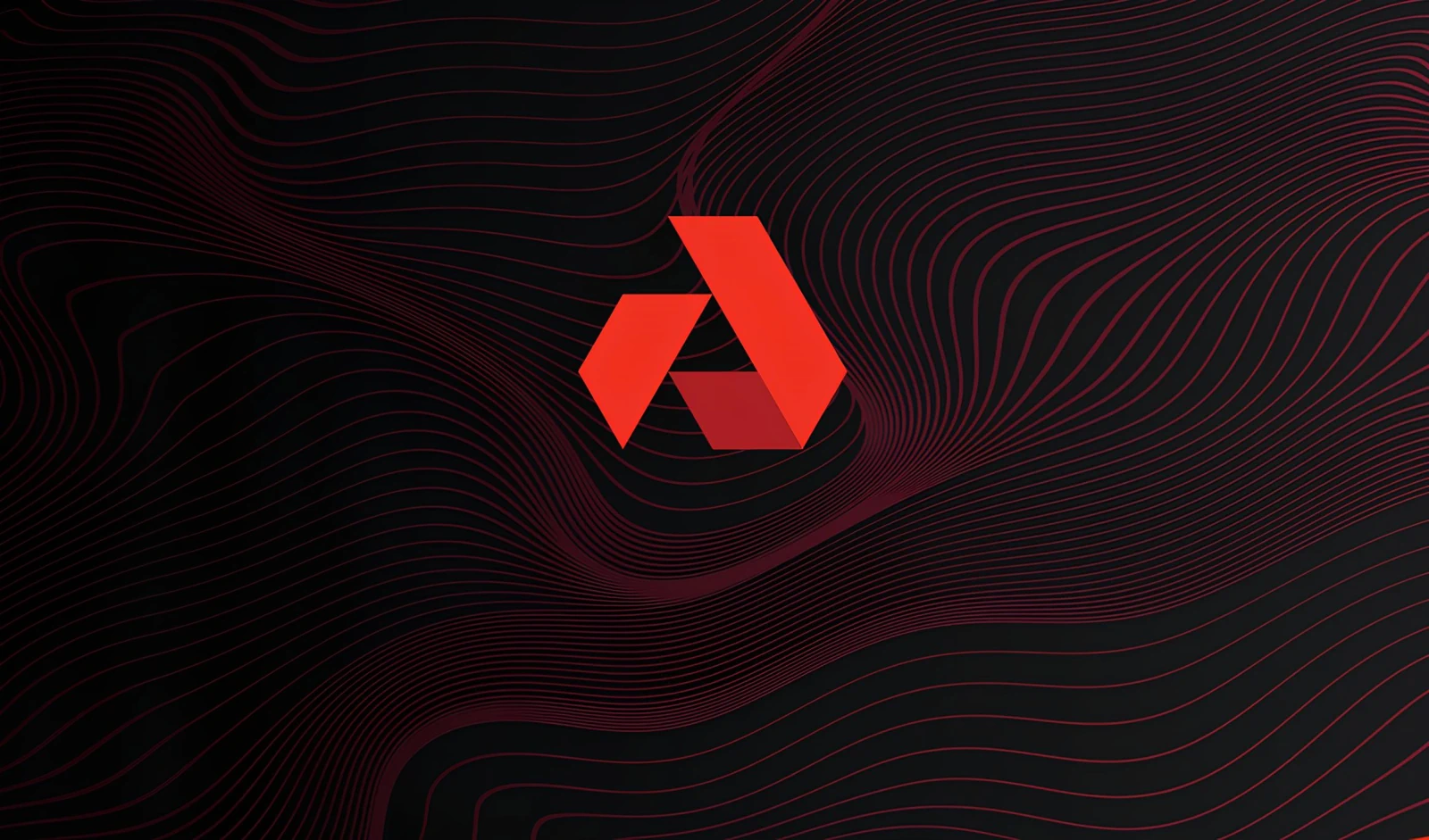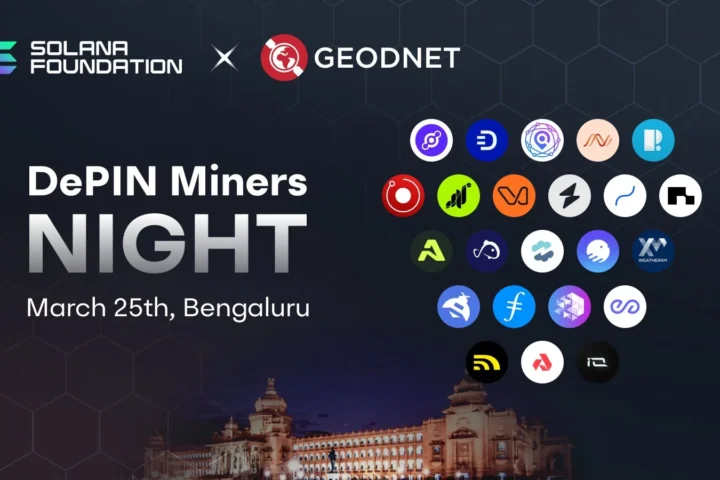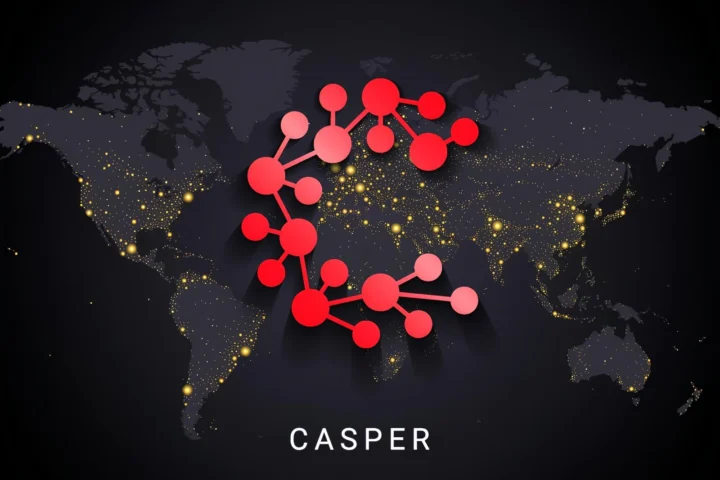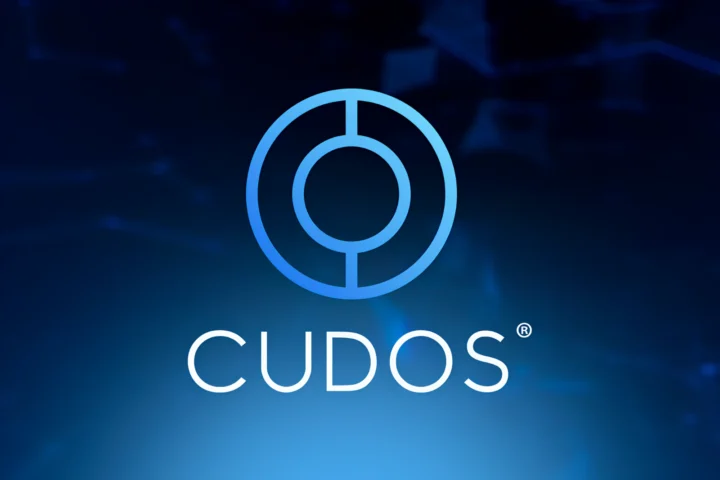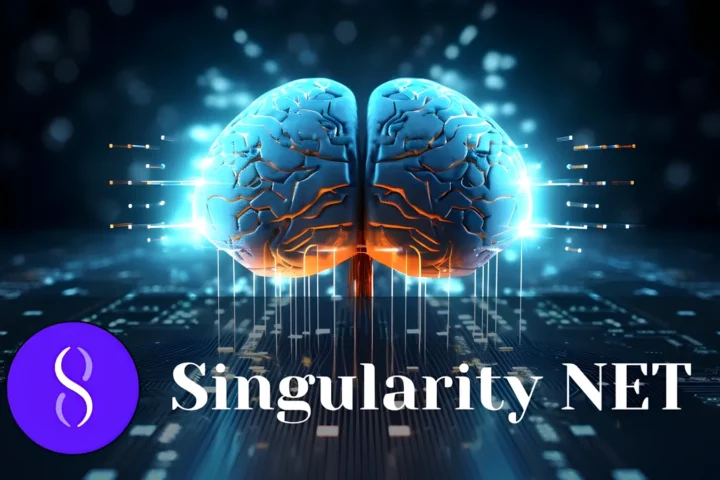Akash Network, often referred to as the “Airbnb of Cloud Computing,” is a decentralized cloud computing platform that leverages blockchain technology to provide a more efficient, cost-effective, and transparent alternative to traditional cloud services. This article delves into various aspects of Akash, including its native token (AKT), price predictions, and the broader ecosystem it operates within.
Introduction to Akash Network
Akash was founded in 2018 by Greg Osuri, a veteran in the tech industry with a background in distributed systems and cloud computing. The platform aims to democratize cloud computing by allowing anyone to rent or provide computing resources, similar to how Airbnb operates in the hospitality sector. By eliminating intermediaries, Akash Network reduces costs and increases efficiency, making cloud computing more accessible to a broader audience.
Akash Network (AKT) Coin
The native token of Akash is called AKT. AKT serves multiple purposes within the ecosystem, including:
- Staking: Users can stake AKT to participate in the network’s governance and earn rewards.
- Transaction Fees: AKT is used to pay for transactions and services on the network.
- Provider Rewards: Providers of computing resources are rewarded with AKT for their contributions.
Akash Price Prediction
Current Price and Recent Trends
As of November 15, 2024, the price of Akash (AKT) is $2.99. Over the past 24 hours, the price has decreased by 0.95%, reflecting some short-term volatility. However, the overall sentiment remains bullish, with the Fear & Greed Index showing 88 (Extreme Greed). Over the past 30 days, Akash has recorded 18 green days (60%), with a 17% price increase.
Price Predictions for 2025-2030
Analysts and market experts have provided various price predictions for Akash Network (AKT) over the next few years:
- 2025: Some predict that the price of AKT could reach $75.63 by the end of 2025, driven by increasing adoption and demand for decentralized cloud services.
- 2026: In 2026, the cryptocurrency market is expected to enter a new bear market phase, with prices across the board potentially experiencing a significant decline. As a result, AKT’s price is likely to drop throughout the year. By the end of 2026, AKT’s price is expected to be significantly lower, as the market downturn takes hold.”
- 2030: On a longer time scale, the price forecast for 2030 projects AKT to continue its upward trajectory, although specific figures vary among different analysts.
Akash Ecosystem
Akash Cloud
Akash Cloud is the core service of the Akash Network, providing a decentralized, open-source, and community-driven cloud computing platform. It aims to offer a more transparent and cost-effective alternative to traditional cloud providers like AWS, Google Cloud, and Microsoft Azure. By leveraging the power of blockchain, Akash Cloud ensures that users have control over their data and computing resources.
Akash Network Providers
Akash Network providers are individuals or organizations that offer their computing resources to the network. These providers are rewarded with AKT for their contributions, creating a symbiotic relationship within the ecosystem. Providers can set their own prices and terms, fostering a competitive market that benefits both providers and users.
Akash Network Staking
Staking AKT is a crucial aspect of the Akash Network ecosystem. By staking their tokens, users can participate in the network’s governance and earn rewards. Staking helps secure the network and ensures its smooth operation. Additionally, staking can be a lucrative investment opportunity, as stakers earn a portion of the transaction fees and new tokens generated by the network. On average, Akash stakers can expect to earn around 14.8% in annual rewards, making it a attractive option for those looking to generate passive income from their token holdings.
Akash vs. Render
Render is another decentralized cloud computing platform that competes with Akash Network. While both platforms offer similar services, there are some key differences:
- Technology Stack: Akash Network has its own blockchain within the Cosmos ecosystem, which provides the platform with the flexibility to customize its architecture and optimize its performance. This autonomy allows Akash to offer extremely low transaction fees, typically less than 1 cent, and fast transaction confirmation times of just 1 second. In contrast, Render is a token that exists on both the Ethereum and Solana blockchains, which means it is subject to the limitations and constraints of these external networks. As a result, Render’s users may experience higher transaction fees and slower confirmation times compared to Akash Network’s bespoke blockchain solution.
- Focus: Akash focuses on providing a comprehensive cloud computing solution, offering a range of services including compute, storage, and networking. While it can be used for various use cases, its primary application is in providing GPU resources for companies to train and deploy their artificial intelligence (AI) and machine learning (ML) models. In addition to this specialized use case, Akash Network also enables users to rent servers for more traditional hosting needs, such as web hosting, database hosting, and other general-purpose computing tasks. In contrast, Render is more specialized, focusing primarily on rendering and compute-intensive tasks, and does not offer the same breadth of services as Akash Network.
- Community and Ecosystem: Akash Network has a strong community and a growing ecosystem, with a significant online presence. On X (Twitter), Akash has attracted a sizable following of 118k users, while Render Network has a slightly larger following of 204k. However, on Reddit, Akash Network’s community is more engaged, with 6.4k subscribers compared to Render Network’s 5.6k. Additionally, on GitHub, Akash has a more established developer community, with 376 followers, whereas Render Network has a relatively small presence with only 65 followers. While Render Network is still building its community, Akash Network’s existing user base and developer community provide a strong foundation for its growing ecosystem.
Network Stats
Here are some key statistics and metrics for Akash Network as of November 15, 2024:
- Total Market Cap: $744 million
- Circulating Supply: 248.29 million AKT
- Daily Trading Volume: $19 million
- Number of GPUs: 637
- Memory Capacity: 121.26 TB
- Active leases: 1.09K
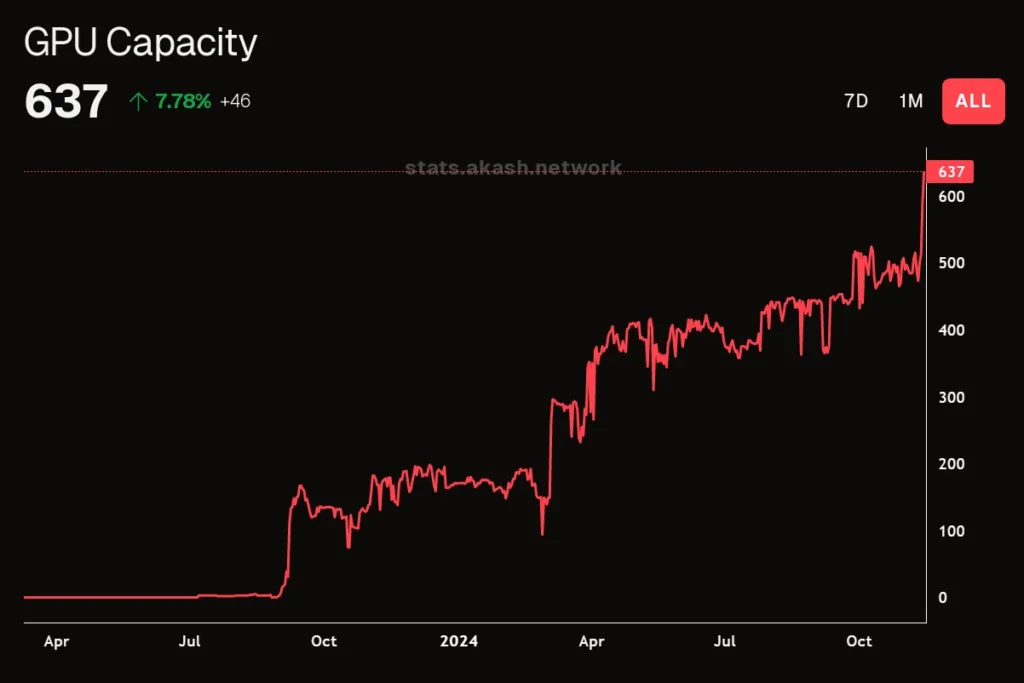
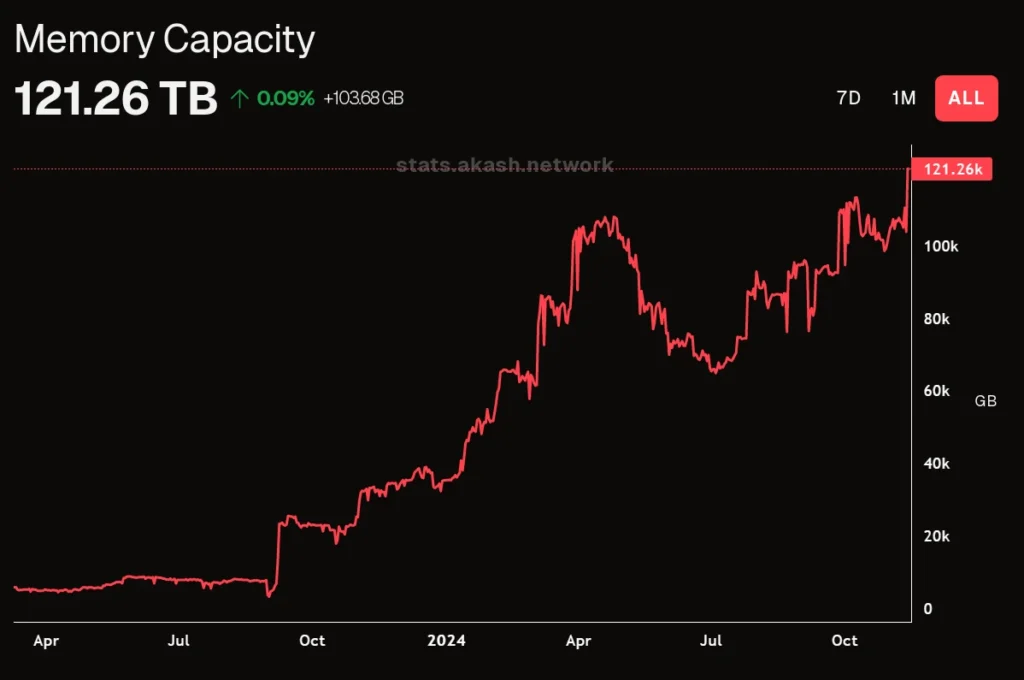
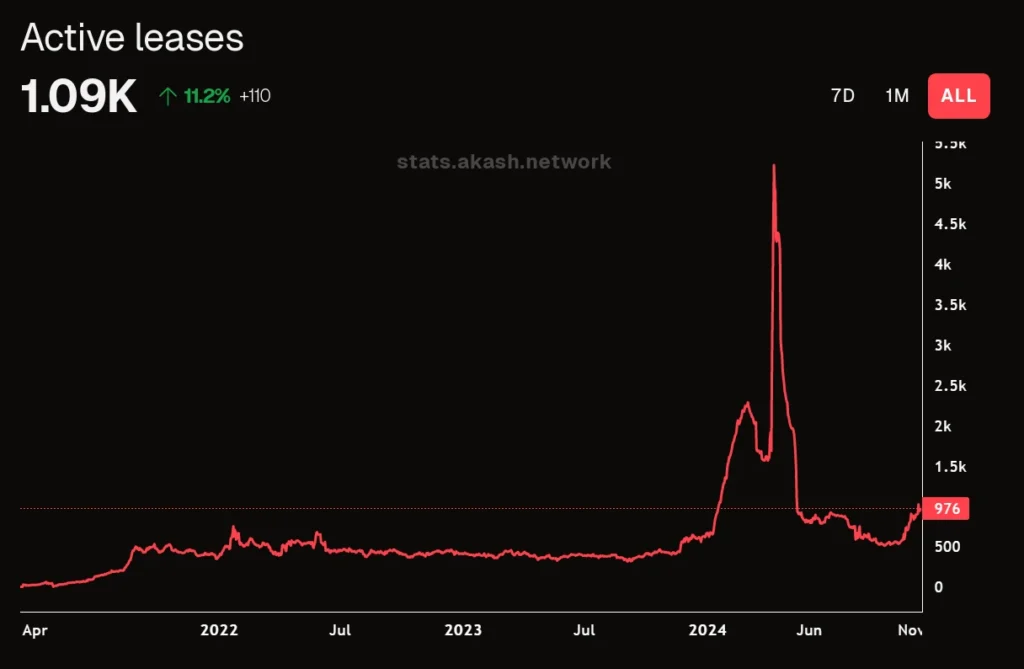
Akash Network on GitHub
Akash Network’s codebase is open-source and available on GitHub. This transparency allows the community to contribute to the development of the platform, ensuring that it remains innovative and secure. The GitHub repository includes the core code, documentation, and various tools and utilities that developers can use to build on the Akash Network.
Akash Network Review
Akash Network has received positive reviews from both users and industry experts. Its decentralized approach to cloud computing offers several advantages over traditional services:
- Cost-Effective: Akash Network is generally more cost-effective than traditional cloud providers, thanks to its decentralized model and lack of intermediaries.
- Transparency: The platform’s use of blockchain ensures that all transactions and operations are transparent and verifiable.
- Scalability: Akash Network can scale easily to meet the demands of its users, making it suitable for a wide range of applications;
- Community-Driven: The platform’s community-driven approach fosters innovation and ensures that it remains aligned with the needs of its users.
Akash Network Mining
While Akash Network does not use traditional mining like Bitcoin, it does offer a form of mining through its provider model. Providers can offer their computing resources to the network and earn AKT as a reward. This model encourages participation and helps to distribute the network’s resources more efficiently.
Conclusion
Akash is a promising decentralized cloud computing platform that offers a unique and innovative approach to cloud services. With its native token AKT, robust ecosystem, and positive price predictions, Akash Network is well-positioned to continue its growth and development in the coming years. Whether you are a user, provider, or investor, Akash Network presents a compelling opportunity in the decentralized technology space.
For more information and to stay updated on the latest developments, visit the official Akash Network website and follow their social media channels.
